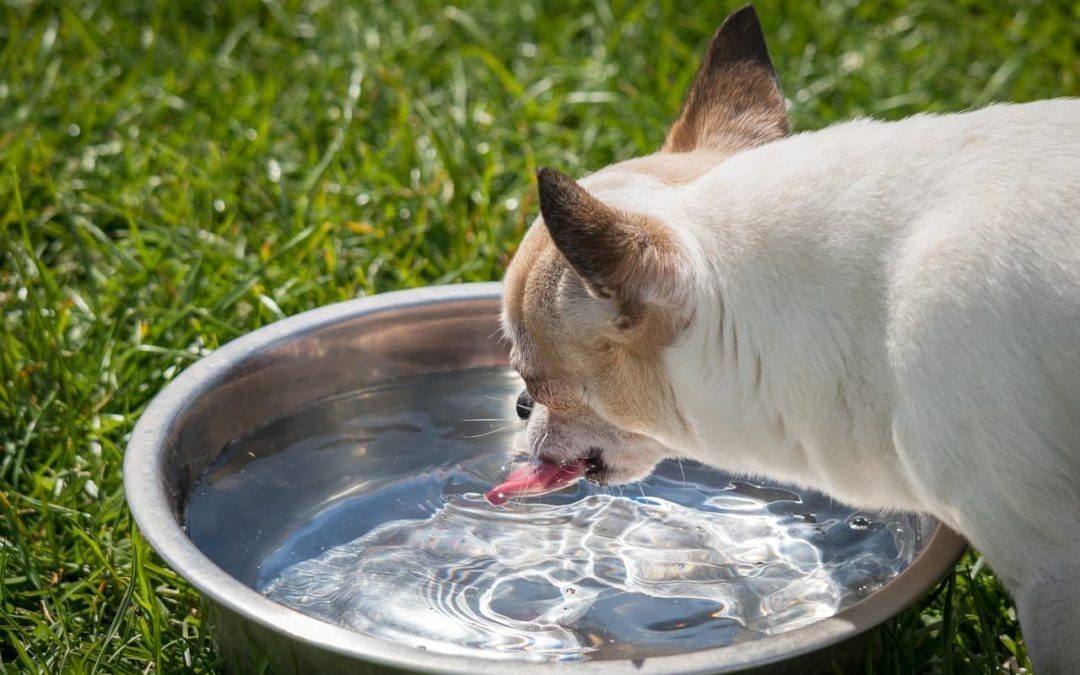Dog fur is great protection against the cold but can be a problem in hot weather. This is because, unlike humans, dogs eliminate heat by panting. Dogs have some sweat glands in the foot pads which help with heat dissipation, but only minimally. When panting isn’t enough, their body temperature rises. This can be fatal if not corrected quickly.
Any hot environment can cause heatstroke, but the most common cause is careless actions such as leaving a dog in a car on a hot day or forgetting to provide shade to an animal kept outdoors.
Symptoms of Heat Stroke
- Panting
- Excessive drooling
- Increased body temperature – above 103° F (39° C)
- Reddened gums and moist tissues of the body
- Production of only small amounts of urine or no urine produced at all
- Rapid heart rate
- Vomiting blood
- Black, tarry stools
- Small, pinpoint areas of bleeding
- Seizures
- Muscle tremors
- Wobbly, uncoordinated movement
Risk Factors
- Previous history of heat-related disease
- Age extremes (very young, very old)
- Heat intolerance due to poor acclimatization to the environment (such as a heavy coated dog in a hot geographical location)
- Obesity
- Poor heart/lung conditioning
- Underlying heart/lung disease
- Increased levels of thyroid hormone (hyperthyroidism)
- Short-nosed, flat-faced (brachycephalic) breeds
- Thick hair coat
- Dehydration, insufficient water intake, restricted access to water
Prevention
Dogs that have suffered an episode of hyperthermia are prone to experiencing it again. Be aware of the clinical signs of heat stroke so you may respond quickly to an episode. If your dog is older, or is a brachycephalic breed that is prone to overheating, avoid taking your dog out during the hottest times of day, or leaving the dog in places that can become too hot for your dog, like a garage, sunny room, sunny yard, or car. Never leave your dog in a parked car, even for only a few minutes, as a closed car becomes dangerously hot very rapidly. Always have water accessible to your dog; on hot days you can even add ice blocks for your dog to lick.
If you think your dog is suffering from heat stroke, contact us immediately as heat stroke can be deadly if not treated promptly.

